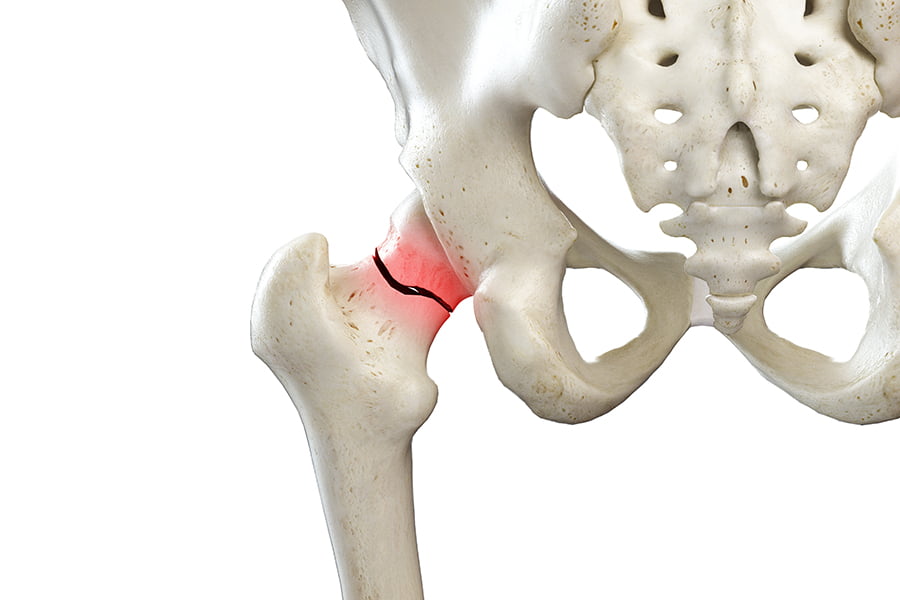
Repair or replace a fractured hip? Left to itself, a fractured hip, like most broken bones, will mend itself. The healing process, however, requires immobilizing the joint through complete bed rest, which often takes three to four months. There is potential for other medical problems to develop, especially in the elderly. The complications of prolonged bed rest can include blood clots, bedsores, malnutrition, and pneumonia. Surgery to resolve the problem is therefore recommended.
A hip fracture can impair the flow of blood to the structures in your hip joint. If an adequate blood supply is not restored quickly, bone and tissue can die. This complication of hip fractures is called avascular necrosis (AVN).
Whether to repair the hip fracture or to replace the hip joint depends on the type of fracture and the condition of the bone. Thin or osteoporotic bone may not heal. Some areas of the bone have less blood supply than others have, and won’t heal easily either.
If a repair is being considered, an X-ray of the hip joint will help your surgeon determine if the hip joint is stable. If the head of the femur (thigh bone) is secure inside the hip socket, the joint is considered stable. If not, there’s a much greater chance for a poor result pinning an unstable joint. In such cases, hip joint replacement is needed.
If the bones have not moved and are in good condition, your surgeon may use metal screws, plates or a rod to fasten them back together again. If your bones are damaged and/or have moved out of alignment he may need to perform a partial hip replacement called a hemiarthroplasty. During this surgery, the head and neck of the femur are replaced completely with a metal ball and stem.
If your fracture is severe and/or arthritis or AVN has already damaged some of the bone and tissue in the hip joint, your surgeon may recommend a total hip replacement. This procedure involves replacing your upper femur and the socket in your pelvic bone with replacement parts (prostheses).
For more information on total hip replacement using the direct anterior approach, call Zehr Center for Orthopaedics at 239-596-0100. Dr. Zehr is Southwest Florida’s leading orthopaedic surgeon in this superior approach to hip replacement surgery.
For more information on this subject, call The Zehr Center for Orthopaedics at 239-596-0100 or visit www.zehrcenter.com. The information contained herein is compiled from a variety of sources. It may not be complete or timely. It does not cover all diseases, physical conditions, ailments, or treatments. The information should NOT be used in place of a visit with your healthcare provider, nor should you disregard the advice of your health care provider because of any information you read on this topic.